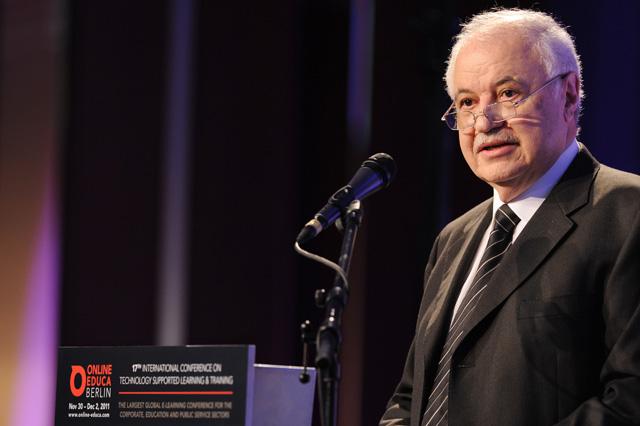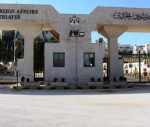You are here
Future of education lies in ICT — workshop participants
By Mohammad Ghazal - Nov 04,2014 - Last updated at Nov 04,2014
AMMAN — Transformation to digital education in Jordan and the rest of the Arab world will play a key role in the development of ICT skills, which are fundamental in increasing economic competitiveness, experts said Tuesday.
The experts — who made the remarks at a workshop to discuss a report on ICT integration and e-readiness in education that covered Jordan, Egypt, Oman, Palestine and Qatar — also stressed the role ICT integration in schools plays in reducing dropouts.
UNESCO and Talal Abu-Ghazaleh Organisation (TAG-Org) prepared the report.
“The development of education is directly linked to the integration of ICT. There is no future without ICT and therefore ICT education is the future of humanity,” TAG-Org Chairman and CEO Talal Abu-Ghazaleh said at the workshop, in which education experts took part.
He called for speeding up the transformation to digital education in the Arab world, as “this digital revolution” is taking place across the world and Arab countries need to keep up.
In an address at the event, UNESCO Representative to Jordan Costanza Farina said there has been a shift from traditional economies to “knowledge economies”.
This trend is characterised by the changing demand for manual skills and routine cognitive tasks to growth in new knowledge innovation, Farina said at the workshop.
“With this, tertiary education and society as a whole increasingly require highly skilled students and workers with problem-solving abilities as well as communication and teamwork skills, and ICT is believed to play a significant role in this transformation,” the UNESCO official said.
Farina also underlined the importance of ICT statistics in education, which helps address challenges in the sector.
“Some of the key gaps lie in problem solving, ICT skills and developed critical thinking,” she said.
“UNESCO believes that, under the right conditions, ICT can have a massive impact on the expansion of learning opportunities to greater and more diverse populations.”
In Arab countries, the primary net enrolment ratio increased from 79 per cent in 1999 to 89 per cent in 2011, Farina noted.
Despite this progress, five million children of primary school age are still out of school.
Millions are also likely to be denied the right to education in countries that have suffered — and are suffering — from conflict but do not report data, such as Iraq and now Syria, Farina added.
One in five young people in the Arab states have never completed primary school, and struggle to find well-paid and secure jobs.
An estimated 10.5 million young people in the region require at least a basic level of secondary education in order to possess the foundational skills needed to find work with a minimal, living wage, according to Farina.
Participants from several Arab states, including Qatar and Algeria, UN officials and experts took part in the workshop.
Related Articles
AMMAN — What does it take to become an inventor that can make a difference? After all, the prosperity of an entire country might be a g
The situation of online education in Jordan is “painful” with the Kingdom lagging behind in adopting online education strategies, Talal Abu-Ghazaleh, founder and chairman of Talal Abu-Ghazaleh Organisation (TAG-ORG) said Tuesday.
AMMAN – Senator Talal Abu-Ghazaleh will head to Boston to deliver a lecture at the SciTech Conference, hosted by Massachusetts Institut


















